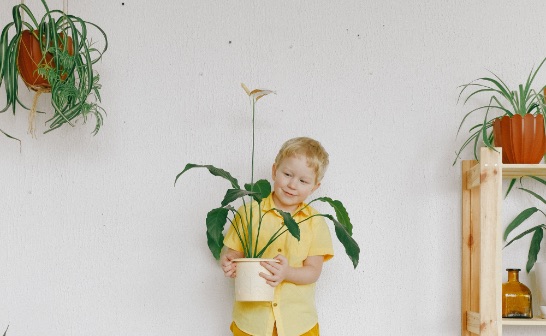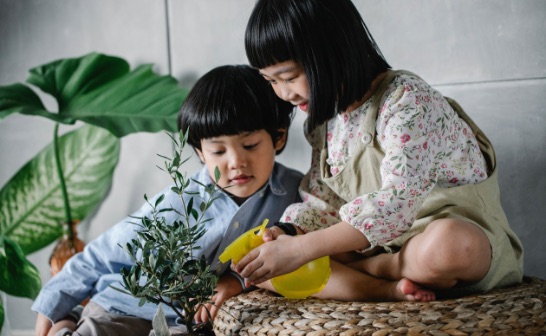Children learn best when engaging all their senses. With planting, children can touch and feel the dirt, seeds and see the vibrant colors and varied sizes of the plants, and smell the amazing scents of the nature plants. Allowing all the senses to be involved helps children understand and grasp the concept of planting along with all the mathematic and scientific concepts that go along with it.
2. Enhances Fine Motor Development
Scooping up the dirt, placing the seeds in the pots and pouring the water all take fine motor control and strength. As children plant, they develop important motor skills that will help them improve their academic skills such as writing, cutting and typing.
3. Introduces Kids to Scientific Concepts
Planting is a wonderful introduction into the world of science especially botany, biology and chemistry. We used the clear glass pot so children can make their own hypothesis and monitor the growing progress each day. Without even realizing it, children are learning the basic steps of the scientific process. For children with older age, they would learn about the impact of sunlight and water on the growth of a plant.
4. Fosters Family Bonding
Planting provides children and their parents opportunities to work together as a team as decide what lowers and vegetables to plant and where to plant them. Children and parents would be co-workers and make decision during discussion rather than just adult and kids.


